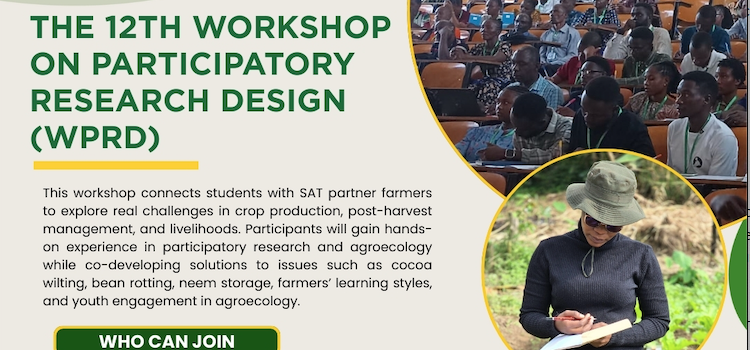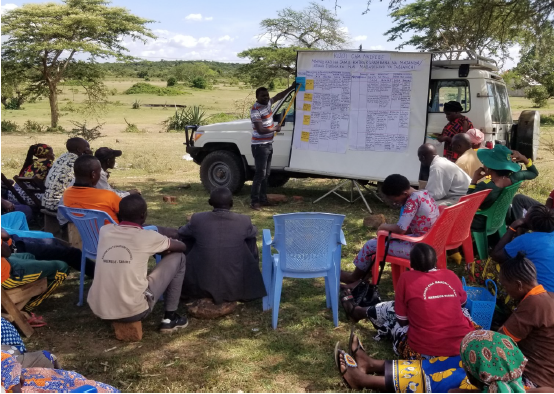South-South Cooperation – Green Flower Foundation and SAT
In March 2019 the SAT Farmer Training Center received three guests from Ethiopia. Mr. Ali is part of the Green Flower Foundation, an organization that supports young people in Ethiopia. They have a project that Ali is currently developing in Bishoftu Polytechnic College. Bishoftu is a city just some kilometer away from Addis Ababa. At that college he is creating and implementing a curriculum for organic horticulture. The students will be trained form Level I to IV with theoretical and practical input on a small plot at the college. Two of the teachers, Hailu and Dereje, joined Ali to travel to Tanzania to prepare for this program.SAT offered those three guests a two weeks special training in organic production. Their individual schedule was of great variety to get input for the most crucial aspects of organic agriculture.Amongst other things SAT facilitators trained them in organic horticulture, crop production, manure production, soil management, compost making, pest control, organic certification and creating a business plan. These courses were designed to help them develop their organization further in organic production. The theoretical parts were taught and discussed, followed by practical sessions in the field. Dereje is most proud of their double dug which the three of them were digging under the tropical sun, a climatic condition they were not used to.

One thing they were very impressed by was how well educated every single person working in the field at SAT is, that everyone knows exactly why and how they are doing their work in order to achieve good organic quality, said Mr. Ali.They went to visit one of the pastoralist groups that supported by SAT in Mvomero. The challenges of the farmer-pastoralist conflict were discussed as well as how SAT has managed to improve the situation of land use struggles. In Ethiopia there are similar challenges between these groups and there is an urgent need for improvement as well.The visitors were fascinated on what has been done already in trying to overcome the existing challenges. Even though their college is focusing on horticulture, they might implement trainings about livestock management in their project as well. All three were very happy that their expectations towards the training were more than fulfilled. They will implement the gained theoretical and practical knowledge in their organization and further its development.

Having similar goals and challenges SAT will have a partnership to promote sustainable agriculture in East Africa. The knowledge transfer can help to find solutions to challenges that communities in the whole region are dealing with. The fact that organic production is now being implemented in a curriculum at a school is a big success. This is a sign for the future towards the right direction in agriculture. This is the second partnership of SAT in Ethiopia. South-South Co-operations like those are crucial for sustainable development and can create innovations and benefits for organic farming in East Africa.








